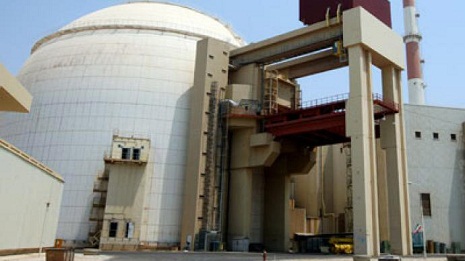It is while some Iranian experts claim that the country`s nuclear program is not economically justified at all and the issue has become more of a political "prestige".
While responding to a question about shipping uranium outside the country, and then receiving it as converted into fuel rods, the official said that “no uranium will exit from Iran.”
Early in November the New York Times reported that Iran has tentatively agreed to ship much of its huge stockpile of uranium to Russia if it reaches a broader nuclear deal with the West. The Islamic Republic immediately dismissed the issue, calling that media speculation.
Under the proposed agreement, the Russians would convert the uranium into specialized fuel rods for the Bushehr nuclear power plant, Iran’s only commercial reactor, according to The New York Times.
Commenting on the ongoing talks between Iran and the P5+1(the US, UK, France, Russia, China plus Germany), Kamalvandi said that certain progresses has been made in comparison with last year, however there are still some differences over political, technical and legal issues.
Iran and the P5+1 started the first round of nuclear talks after the extension of negotiation deadline on Dec. 17 on deputy foreign ministers level in Swiss city of Geneva. The Iranian diplomats also held bilateral meetings with the US and French delegations in the last two days.
Iran and the P5+1 group (the US, UK, France, Russia, China plus Germany) agreed to extend nuclear talks until July 1, 2015 after failing to meet the 24 Nov. deadline to reach a comprehensive nuclear agreement.
The sides also extended the Geneva nuclear deal, which was signed last November for providing Iran with some sanctions relief in exchange for Tehran agreeing to limit certain aspects of its nuclear activities.
The US and its west allies suspects Iran of developing a nuclear weapon - something that Iran denies. The Islamic Republic has on numerous occasions stated that it does not seek to develop nuclear weapons, using nuclear technology for electricity generation and medical purposes instead.
More about:
















































